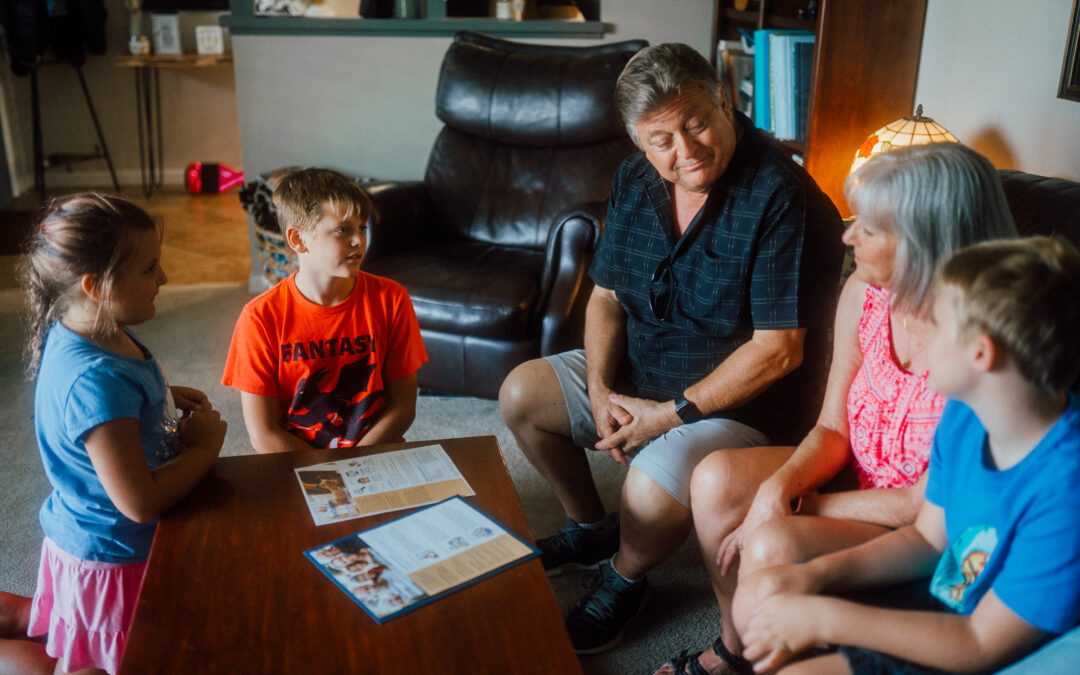Key takeaways:
- Over $84 trillion is expected to transfer from Baby Boomers to younger generations and charities by 2045 (Cerulli, 2021).
- This moment is filled with both opportunity and complexity—especially when it comes to legacy and generosity.
- With the right conversations, tools, and planning, families and ministries alike can steward this transition well.
Understanding the Great Wealth Transfer
The United States is in the early stages of the largest wealth transition in modern history (Cerulli, 2021). Often referred to as The Great Wealth Transfer, this shift involves trillions of dollars moving from older generations, primarily Baby Boomers, to their children, grandchildren, and charitable organizations.
Estimates vary, but projections suggest that between $68 and $84 trillion will be transferred by 2045. That includes about $12 trillion going to charitable causes and the rest to heirs (Cerulli, 2021). For context, the U.S. federal budget in 2024 was $6.8 trillion, making the Great Wealth Transfer more than three times that amount (Congressional Budget Office, 2024).
Baby Boomers, who currently hold more than $78 trillion in wealth, are beginning to pass down assets through wills, trusts, and gifts (CFA Institute, 2025). While the scale of this transfer is historic, its long-term positive impact in our communities will depend on how intentional people are during the transfer process.

Is the Next Generation Prepared?
The Great Wealth Transfer isn’t just a shift in dollars, it’s a shift in values, responsibility, and opportunity. For families, it raises important questions: Are the next generation ready to manage wealth wisely? Are they equipped with the tools and mindset to use what they receive in alignment with your family’s values?
Research shows that many people, especially younger adults, don’t feel prepared. One survey found that 72% of Americans don’t feel confident managing a financial windfall (Citizens Bank Survey, 2024). Many aren’t sure when or how to get trusted advice, and nearly a third said they would only seek help from a financial professional if they inherited $1 million or more (Citizens Bank Survey, 2024).
What impact will the next generation and our community miss out on if they are not prepared?
At the same time, expectations don’t always match reality. While a third of Millennials expect to receive an inheritance, only about 22% of Boomers expect to leave one (CFA Institute, 2024). A growing share of wealth may be spent on long-term care, medical costs, or even financial support flowing upward to older generations in need.
That’s why honest, intentional conversations across generations are so important. Don’t assume your children or grandchildren know your intentions and don’t assume they’ll be ready to navigate the responsibility on their own. Families who align on their values, communicate clearly, and prepare together will be positioned to steward their resources with purpose and generosity.
The Potential for Incredible Generosity
About $12 trillion is expected to be donated to charity by 2045 (Cerulli, 2021). Through intentional planning and conversations, even more could be given during the Great Wealth Transfer through tax-wise giving tools.
At Ten Talents Foundation, we believe this is a moment for purposeful generosity. Whether it’s funding scholarships or starting a Donor Advised Fund so more money can go to nonprofits instead of taxes , this wealth transfer could be a turning point in our Central Valley and beyond.
For example, if you are planning to leave a piece of property to a family member, there are many strategies you could implement to save in capital gains taxes. Those tax savings could then be donated to a nonprofit you love, or put in a Donor Advised Fund your successors could give from for years to come!

Action Steps for Faithful Planning
Here are four steps we recommend to help you make the most of this moment—whether you’re planning to give, or preparing to receive:
1. Clarify Your Goals
Take time to reflect: What kind of impact do you want to have? Do you want to support family, ministries, or both? Naming your giving goals helps shape a plan that aligns with your values—and helps your heirs understand your vision.
2. Build Financial Literacy in the Next Generation
Whether you’re giving or receiving, financial literacy is key. If you’re preparing to pass on resources, take time to share not just assets, but wisdom, your values, lessons, and hopes for how your gift will be used. And if you’re part of the next generation, seek out trusted education and mentorship. The more you understand about managing and multiplying what you’ve been given, the more impact you can make.
3. Use Tax-Wise Tools
Consider strategies like Donor-Advised Funds, charitable trusts, or giving appreciated assets. These can help reduce tax burdens and increase your impact. We can help you explore the best options based on your goals.
4. Communicate Clearly
The best plans can fall apart without communication. Talk with your loved ones, document your wishes, and involve a trusted advisor. A clear plan brings peace, clarity, and purpose.
Let’s Make This Moment Count
The Great Wealth Transfer will define a generation. But its impact, especially for ministries and communities, will depend on whether generosity becomes part of the plan.
At Ten Talents Foundation, we help individuals and families steward their resources for God’s Kingdom. If you have questions about donor-advised funds, legacy giving, or strategic generosity, we’re here to walk with you and your family.
Contact Ten Talents to learn more

Recent Comments